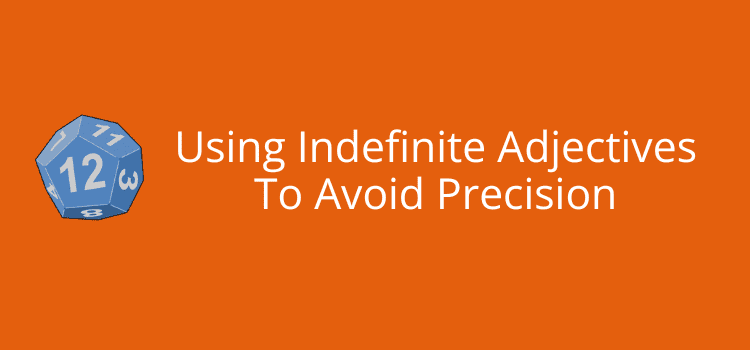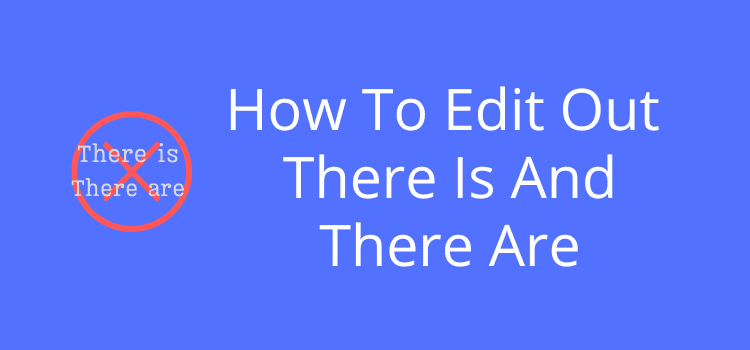
Indefinite adjectives are common and extremely useful in all forms of writing. While many of them are often determiners, they can also act as adjectives.
When it comes to referring to a number, these adjectives allow you to avoid specifics that, in many cases, are unnecessary or irrelevant.
For example, A vast crowd enjoyed the rock concert. It would be rare that you would need to say, 53,435 people enjoyed the rock concert.
You are undoubtedly using these adjectives all the time in your writing, but may not recognise them as adjectives.
What are indefinite adjectives?
When you use an indefinite adjective, you describe a noun in a general, broad, or non-specific manner.
Instead of saying exactly which one, how many, or how often, you simply give a general impression or approximation.
Common examples include some, many, few, several, various, every, each, enough, any, all, and no.
There are many more, which you can recognise easily because they describe a noun.
Fewer people go to a polling station to vote. Most people vote by mail.
Another use is when you want to describe size.
Typical examples include big, small, tall, short, huge, massive, tiny, and little.
Jake is a tall man, which may be more appropriate than saying Jake is a six-foot-five man.
The primary use for indefinite adjectives is to give a rough idea, when detailing a noun would be inappropriate.
It’s up to you to decide when to use precision or estimation to adapt to the flow of your text.
Aren’t they indefinite pronouns?
Yes, indefinite adjectives and indefinite pronouns look almost identical because they often use the same words.
However, it is what the words do in a sentence that makes the difference.
Indefinite adjectives describe or limit a noun, and they must be followed by a noun.
Indefinite pronouns take the place of a noun and stand alone without a noun.
Here are a couple of examples.
Some guests arrived early for the dinner party. (Adjective)
All the invited guests arrived for the dinner party, and some arrived early. (Pronoun)
Few adorable pandas live in the wild today. (Adjective)
Pandas are adorable, but few live in the wild today. (Pronoun)
When you know the difference, it can help you write clearer, more natural sentences to suit your topic or text.
If you inadvertently miss a noun after an indefinite adjective, your sentence is probably incomplete.
And, if you use a pronoun when you really need a noun, you might confuse your readers about who or what you’re talking about.
It might seem like a small detail, but it’s an important one to check.
However, both are useful when you want to use estimations or approximations.
What about definite adjectives?
While you have indefinite and definite pronouns, there is no grammar category for definite adjectives.
However, that doesn’t mean that you can’t make an adjective definite, or at least more defining.
Several types of adjectives can behave as definite, even though grammar rules don’t classify them.
The most obvious are numbers or cardinal adjectives. Words like one, two, fifty, or three hundred work like definite adjectives.
It is because they leave no room for interpretation, because you define exactly how many.
Twelve architects entered the competition. (Definite)
Demonstrative adjectives such as this, that, these, and those are also definite because they define a specific noun.
I’ll take that book on the left. (Definite)
You could also classify possessive adjectives such as my, your, his, her, its, our, and their.
I think I left my wallet at the shop. (Definite)
Certain descriptive adjectives can also act in a sort of definite way, but many are often too generalised.
Go through the second glass door on your left. (Somewhat defined as opposed to a wooden door.)
While there may not be a strict grammatical category, you can see that you can use adjectives that have a definite, or at least, more definite meaning.
Summary
Yes, it’s a minor grammar point that usually comes naturally to all writers.
However, it’s worth keeping in mind because there is rarely a need for exacting precision, especially in fiction writing.
The reverse is true if you write on informational, technical, or scientific topics. You definitely need to be precise with the information or data that you provide.
Knowing and understanding how to use either form will certainly help you improve the clarity of your writing.
Related Reading: Participle Adjectives Are A Writer’s Secret Tool
Share This Article


